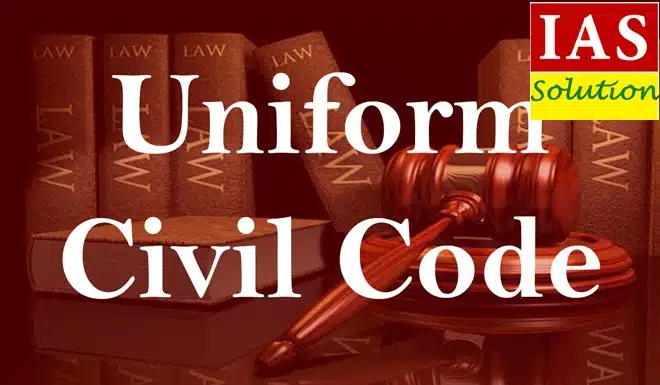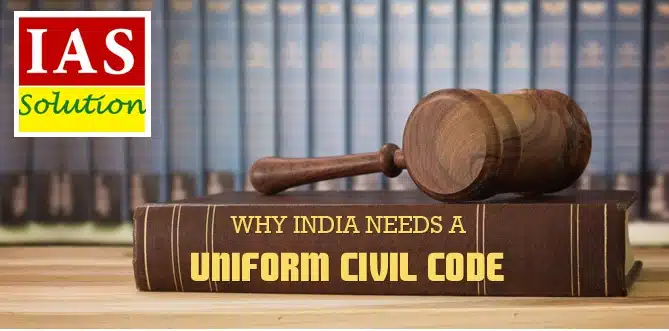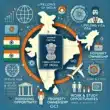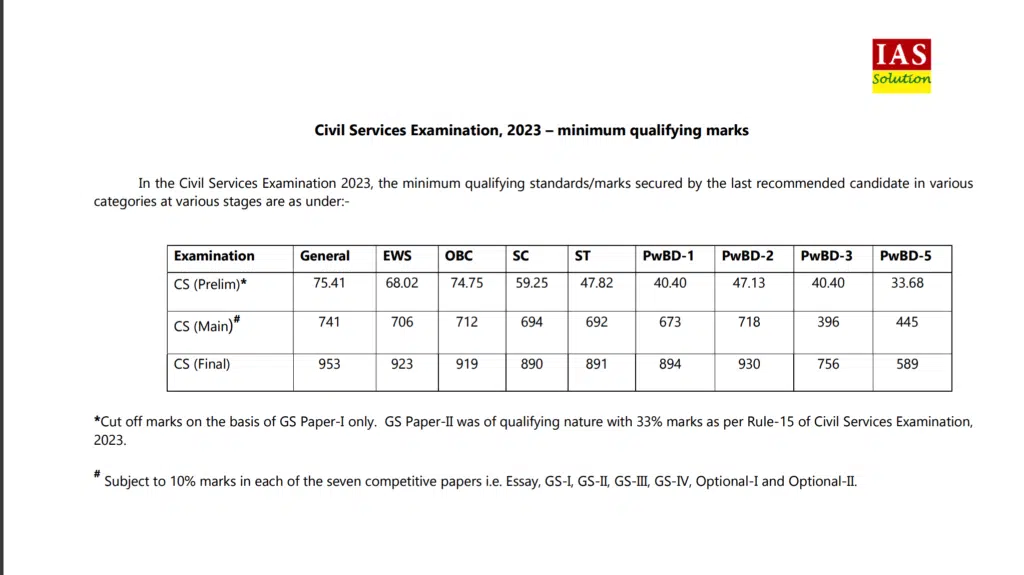Uniform Civil Code (UCC): Advantages and Disadvantages
The Uniform Civil Code is the application of one national civil irrespective of their religion. The uniform civil code covers various areas like marriage, divorce, inheritance, and adoption. As these matters are secular in nature they can be enacted through a uniform law. In other words, this can be termed as personal law. Although some are describing this as the government’s infringing on personal freedom, the uniform civil code has certain advantages also.
Background of UCC
Our Constitution and Uniform Civil Code
The Indian constitution has a provision for a Uniform Civil Code in Article 44 as a Directive Principle of State Policy which states that the state shall endeavor to all citizens a uniform civil code throughout the territory of India.
Advantages of Uniform Civil Code
Gender Equality
The implementation of a uniform civil code across the nation will enable the abolishment of gender discrimination in the nation. For example, according to various religions, inheritance, marriages, etc are male-dominated. After seven decades of independence also women are battling for equality
A Boost to National Integrity
The formation of UCC will boost national integrity. Even though our country has diverse cultural values, a unified personal law irrespective of gender, caste, creed, etc will boost national unity.
Cornerstone of secularism
The preamble of our constitution clearly states that India is a sovereign, socialist, secular state. But it is high time to think that whether the citizens of India will enjoy real secularism without the implementation of UCC. Even after decades of independence also different personal laws are in existence for different religions.
Social reforms
Once the UCC is formulated across the nation, India will undergo another social reform in this century. For instance, in the Indian context, Muslim women are denied personal laws in relation to marriage, divorce, etc. On the contrary, in various Muslim nations like Pakistan, Bangladesh, Turkey, Morocco, etc women enjoy codified personal laws. So after the implementation of UCC Indian women [especially Muslims, Christians etc] will also enjoy a codified personal law. Therefore, a stepping stone towards another social reform across the country.
Disadvantages of the Uniform Civil Code
UCC is a threat to communal harmony
Potential misunderstandings regarding the Uniform Civil Code created fear among various religions, especially minorities. It is often viewed by many religions that UCC is aimed against their religious customs and values. Before the implementation of UCC, authorities should win the trust of minorities. Otherwise, it will destroy the communal harmony of the nation.
Also read: One Rank One Pension (OROP) Scheme explained.
Government’s interference in Personal freedom
It is often viewed by many that it is the crooked game of the government to interfere in personal freedom of individuals. But Uniform Civil Code is aiming only to protect and safeguard the rights of all citizens.
Not yet the correct time for implementation
The Muslim community is opposing the implementation of the Uniform Civil Code and states that it is not the correct time. Also, they are arguing that the subject should take into consideration along with other recent issues the silence of authorities in relation to the saffronization of schools, beef issues, etc are triggering them and further stating that the overruling of majorities over minorities.
Difficulties due to India’s diversity
The implementation of the Uniform Civil Code is a cumbersome task due to the wide diversity of our nation. Cultural differences from state to state and community to the community are yet another hindrance to a unified personal law.
Also read: Everything you need to know about Jallikattu
Does UCC need to be implemented?
Goa is the only state which implemented UCC prior to 2024. The implementation of the Uniform Civil Code can be considered the need of the hour. Even after years of achieving independence, citizens are not enjoying real freedom yet. The unified personal law cannot be viewed with religious emotion but as the need for the country.











Leave a Reply